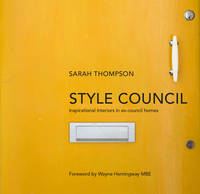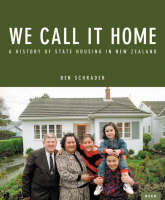 Can reading fiction make you a better person?
Can reading fiction make you a better person?
For example, the state of housing in New Zealand is a serious topic that surges and wanes with the seasons but never completely disappears from our radar. Winter always brings about an increase in concern: no one wants to live in a cold, leaky home, and no one can tolerate the idea of homelessness in winter. How can fiction help with this?
This month alone I've had books on housing fair jumping off the shelves at me. And it started from the unlikely corner of light fiction, with a novel by Marina Lewycka (she of A Short History of Tractors in Ukrainian fame.) Her latest novel The Lubetkin Legacy tackles the topic of council housing in England and the modern day sale of previously held council accommodation to the upwardly mobile.
This light-hearted romp introduces us to some thorny housing issues that are apparent worldwide and also raises our awareness of the architect Lubetkin who pioneered the fusion of social, political and aesthetic factors in the drive for a better world for "ordinary people".
 Next up, the artily compiled Style Council (Inspirational Interiors in Ex-council Homes) fell into my hands. I read this book in a single night. And no, I did not only look at the pictures. It deals with exactly the same problem: the dissolution of council housing in Britain in favour of private ownership. But this time it is from the perspective of the new owners - many of whom have niggly social concerns about what they are doing, but who quite simply cannot afford anything better. The book shows how they transform their new homes, while at the same time, paying respectful homage to the original design philosophies.
Next up, the artily compiled Style Council (Inspirational Interiors in Ex-council Homes) fell into my hands. I read this book in a single night. And no, I did not only look at the pictures. It deals with exactly the same problem: the dissolution of council housing in Britain in favour of private ownership. But this time it is from the perspective of the new owners - many of whom have niggly social concerns about what they are doing, but who quite simply cannot afford anything better. The book shows how they transform their new homes, while at the same time, paying respectful homage to the original design philosophies.
Let's not leave New Zealand out of this. I've looked at three books about state housing in New Zealand, here goes:
Only The Houses Remain is a well researched book on an admittedly complex topic, but it is unlikely to attract uninitiated readers like myself. For example, the word "policy" is mentioned fifteen times in the introduction alone - ever the kiss of death for me.
 Homes People Can Afford (How to Improve Housing in New Zealand) is very slightly more upbeat. It consists of a series of essays by different contributors, but despite a more appealing cover, it still fails to pull in all the fence-sitters whose support it will likely need for a new housing policy to get the traction it requires.
Homes People Can Afford (How to Improve Housing in New Zealand) is very slightly more upbeat. It consists of a series of essays by different contributors, but despite a more appealing cover, it still fails to pull in all the fence-sitters whose support it will likely need for a new housing policy to get the traction it requires.
We Call it Home - A History of State Housing in New Zealand is an older book (2005) but is the most appealing of the three as it focuses more on families and their relationship with state housing. As it has more photographic content, I garnered a better sense of what state housing means to New Zealanders from it.
What I love about this particular learning curve, is that my improved awareness of a serious topic, like housing, was kick-started by an entertaining novel, set in England and written by a Ukrainian writer.
Never underestimate the power of fiction!



Add a comment to: The power of fiction